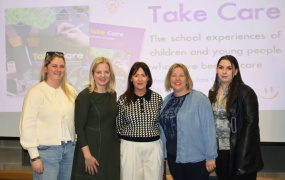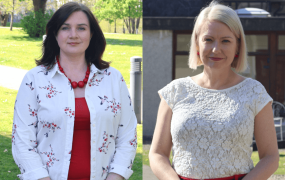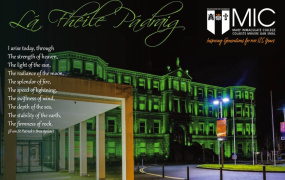How to Apply
Research Programmes
Entry Requirements
All programmes have individual requirements for entry; see Research Programme listing here.
Before Applying
- For helpful information on the value of having a PhD and tips on applying for one, can be found on the MyPhD website.
- Before making an online research degree application, you must first identify an area of interest and a focus for your proposed research project. This applies to all research programmes - Master's by Research, Traditional Ph.D., Structured Ph.D., Professional Doctorate, Monograph or Article-based Thesis [NFQ levels 9 or 10]. In doing so you should consult with a potential academic supervisor or supervisors at MIC, with the relevant Head of Department and with the Research & Graduate School to discuss your ideas. See list of: Faculty of Arts Departments / Faculty of Education Departments or search the MIC Staff Directory.
- You require the agreement of an academic supervisor before advancing your application. While drafting your 3,000-4,000 word research proposal (the key part of your application package), your supervisor must be fully consulted. Your proposal must focus on originality, quality, clarity and feasibility. You can download guidelines on how to prepare a research degree proposal here.
- You will require the agreement of two academic referees who can attest to your qualifications and your suitability for postgraduate studies. One of these may be your proposed research supervisor at MIC.
- Prepare a full current CV for inclusion with your application. Verified academic transcripts for all undergraduate and/or postgraduate degree qualifications held by you will be required. Certified translations must be provided for any documents presented if they are not in the English or Irish language.
- International students whose first language is not English must demonstrate that their English language ability meets the required standard for admission by providing the results of an English language proficiency test (such as IELTS - International English Language Testing Score).
Application Form
With all supporting documentation required, you can now download and complete the Postgraduate Research Degree Application Form. For applications in Irish, download and complete the application form here.
Please use Adobe Acrobat Reader DC to complete your application form. Guides on installing this free program, creating a digital signature and to troubleshoot any difficulties are available below:
- How to complete & sign Adobe Acrobat Forms
- Guidelines on how to install Adobe Acrobat Reader DC and/or setting it as your default PDF opener.
- Guideline here creating an Adobe Digital Signature to sign your form.
Application Fees
Non-refundable application fees may be applicable depending on the individual programme; see Research Programme listing here.
Application Package checklist
When all of the above steps are completed, you can proceed with the submission of your application package. You will need the following supporting documents:
- Research thesis proposal (which has been reviewed and approved by your proposed research supervisor);
- Two Letters of Reference from academic referees of your choice (one may be your proposed research supervisor);
- Current CV;
- Verified academic transcripts for all undergraduate and postgraduate degrees held;
- IELTS (International English Language Testing Score) or equivalent if you are not a native speaker of English;
- Proof of payment of the Application Fee (Realex email confirmation or TransferMate email confirmation for Non-EU applicants).
The complete application package may be sent as a PDF attachment to RGSO@mic.ul.ie.
Applications will only be accepted in either the Irish or English language. In order to facilitate evaluation by the Postgraduate Research Sub-Committee, those submitting Irish language applications may accompany them with an English language translation. Should an English translation not be provided by the applicant, Mary Immaculate College will provide a translation to the Postgraduate Research Sub-Committee. Please note that this additional processing step may take up to four weeks.
Application Deadlines
Generally research degree programmes have commencement dates in September and January of each academic year. Some programmes commence in September only, and so you should check this specifically with the Research & Graduate School.
To meet commencement requirements, you must submit your application before the end of July or the end of November, as appropriate. It is highly advisable to apply well in advance of the deadlines, as places on most programmes are offered on a first come, first served basis. Commonly, most applications are submitted in the April-June period for the subsequent academic year.
Application outcomes
The MIC Postgraduate Research Subcommittee (PRSC), which is a sub-committee of the Research Committee, makes final decisions on applications to all research degree programmes. New applications are considered at regular meetings of the PRSC. Normally you will be contacted within six weeks in relation to the outcome of your application.
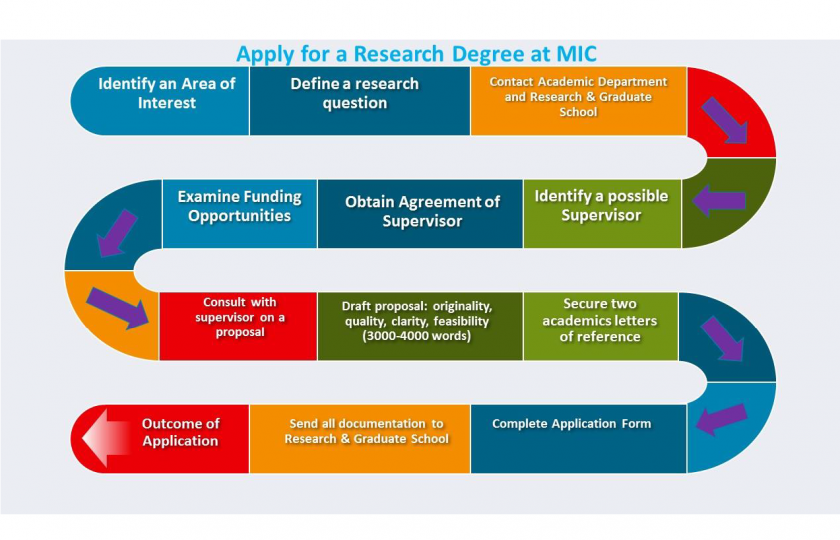
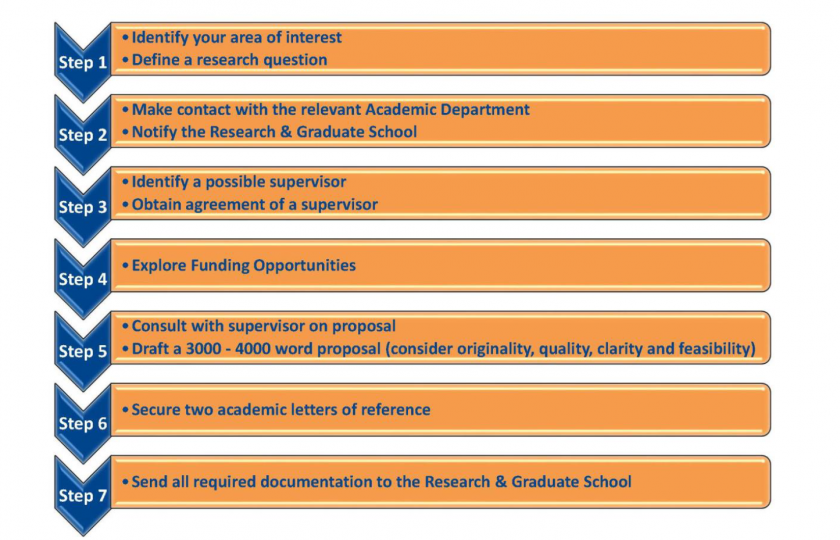
Taught Programmes
Entry Requirements
All programmes have individual requirements for entry; see Taught Programme listing here.
Application Form
With all supporting documentation required, you can download and complete the relevant Postgraduate Taught Degree Application Form in the 'How to Apply' tab on the specific page of the programme in question.
Application Fees
Non-refundable application fees are applicable in most cases but please confirm this by checking the individual programme in the Taught Programme listing here.
Application Deadlines
Generally taught degree programmes have commencement dates in September on the year that they are running. Application deadlines vary according to the programme. See Taught Programme listing here. It is advisable to apply well in advance of the deadlines, as places on most programmes are offered on a first come, first served basis.
Application outcomes
The MIC Admissions Office will inform prospective students if they are successful in gaining a programme place.
- Research Programmes
- Taught Programmes



